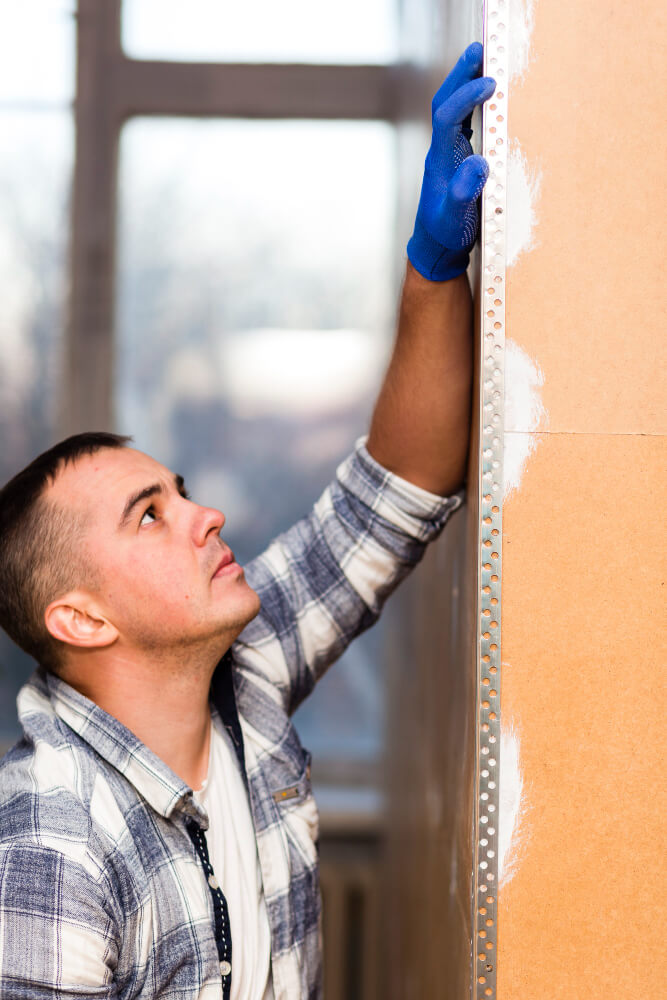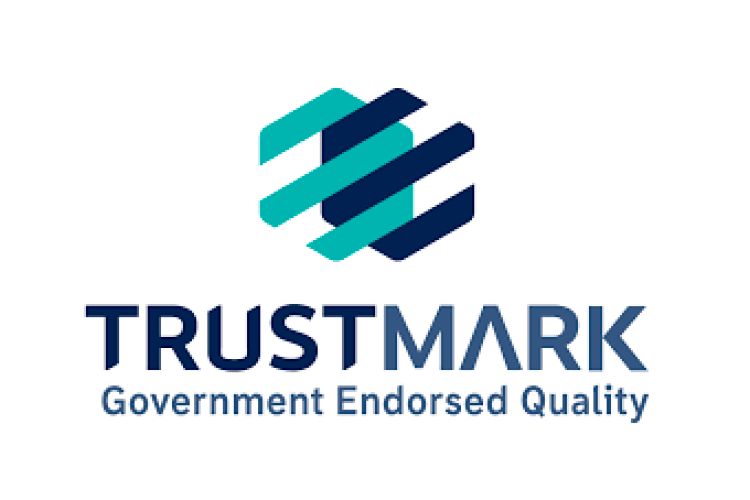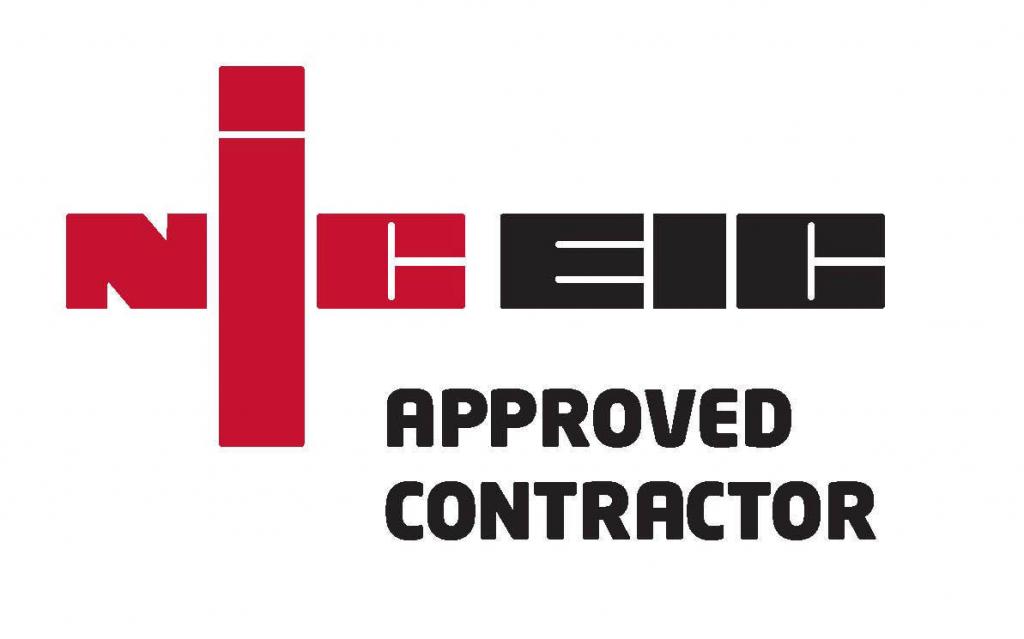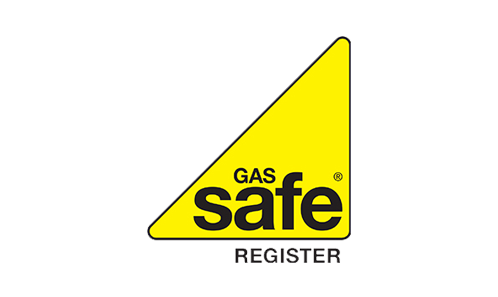

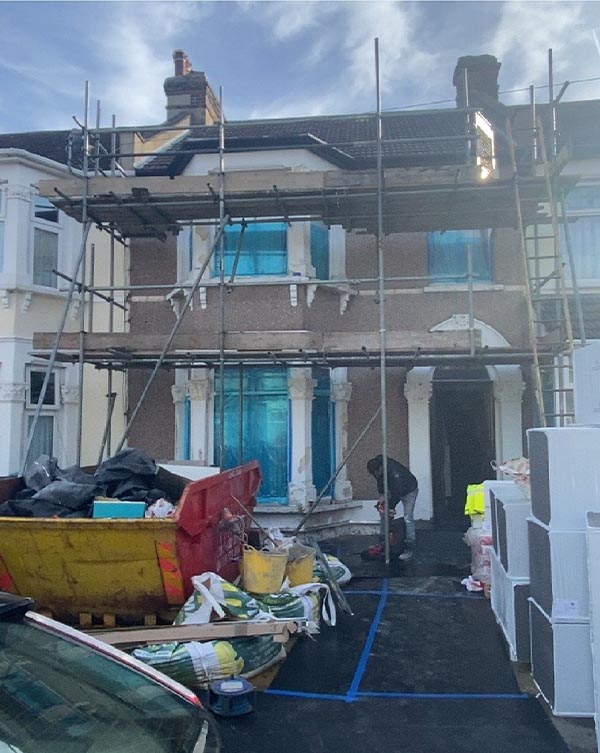
External Wall Insulation
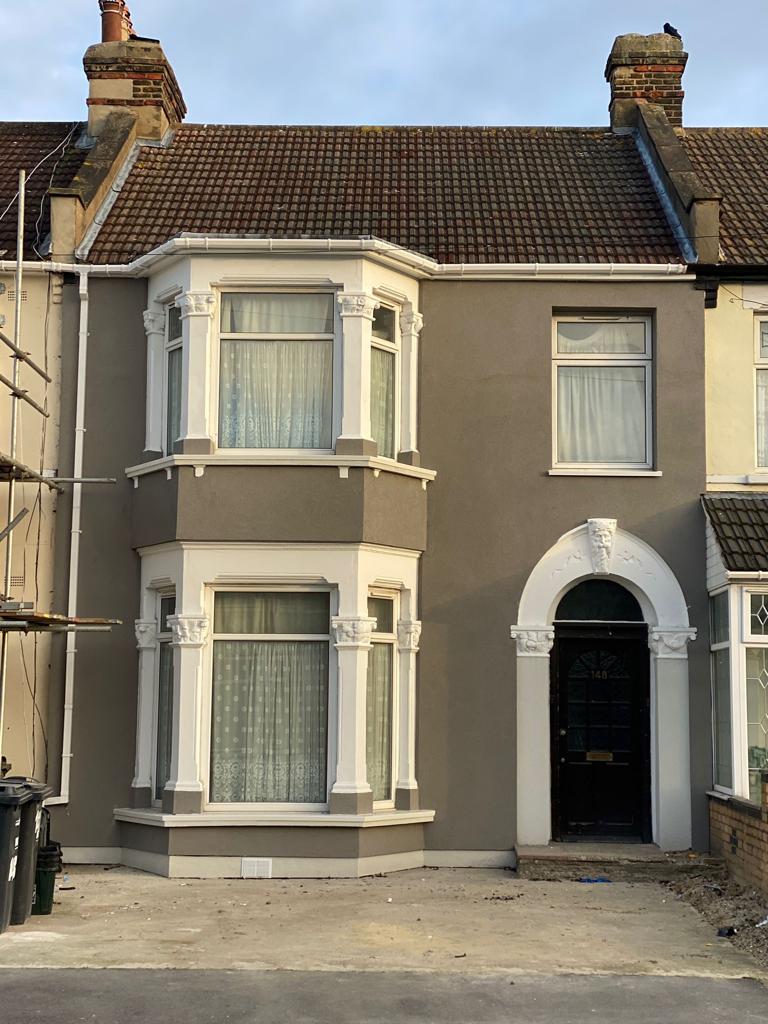
Funding Available for Tenants & Homeowners
Table of Contents
External Wall Insulation (EWI) Grant
Homeowners or private tenants who receive ECO4 benefits and have a solid wall may qualify for a Free External Wall Insulation Grant. The rental property’s EPR condition is E, and the homeowner’s D or lower. In addition, a free Energy Performance Report (EPR) assessment should be carried out to check whether the assessment outcome meets the qualifying criteria and project funding. Please note that we will not rely on any existing EPC and grant is available subject to the assessment. If you live in a rental property, please obtain permission from your letting agent or landlord before applying for the grant. External Wall Insulation Grant will not be eligible for global heritage sites, conservation areas, and listed properties.
In the UK, houses are typically built with two types of walls: Cavity Walls and Solid walls. However, homes constructed before 1930-49 generally have solid walls instead of cavity walls. By installing external wall insulation, you can significantly reduce the amount of heat that escapes through your home’s walls which can result in savings of up to £470 per year on your energy bills.
Difference between Cavity & Solid Wall:

Key Benefits of External Wall Insulation
Less heat loss can lead to lower energy bills, with an average saving of £470. This also helps to combat drafts and increase the sense of comfort and cosiness in your home. The best part is that your internal floor area remains the same size, and there is no disruption during installation. By insulating your walls, you can allow them to contribute to your house’s thermal mass, much like a tea that keeps a kettle warmer for longer. This increases the lifespan of your wall and majorly reduces condensation on your internal walls. Moreover, insulation can increase the value of your property
LA Flex Eligibility?
Please see the London Authority Flexible Criteria. If you do not receive any of the benefits listed as ECO4 qualifying benefits, one of the following is required.
- Total household gross income is less than £31,000 (P60, job pay slip OR pension statement etc, will be needed as proof)
- Been identified by doctors as Low-income and vulnerable (GP letter will be needed as proof)
Funding Available for Tenants & Homeowners
Table of Contents
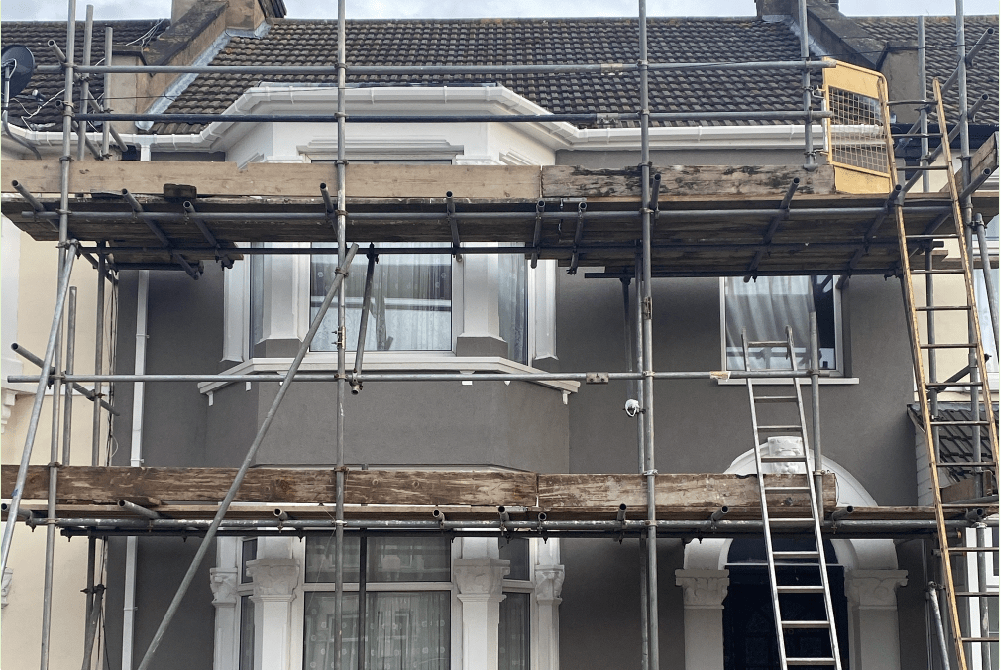
External Wall Insulation (EWI) Grant
Homeowners or private tenants who receive ECO4 benefits and have a solid wall may qualify for an Free External Wall Insulation Grant. The rental property’s EPR condition is E, and the homeowner’s D or lower. In addition, a free Energy Performance Report (EPR) assessment should be carried out to check whether the assessment outcome meets the qualifying criteria and project funding. Please note that we will not rely on any existing EPC and grant is available subject to the assessment. If you live in a rental property, please obtain permission from your letting agent or landlord before applying for the grant. External Wall Insulation Grant will not be eligible for global heritage sites, conservation areas, and listed properties.
In the UK, houses are typically built with two types of walls: Cavity Walls and Solid walls. However, homes constructed before 1930-49 generally have solid walls instead of cavity walls. By installing external wall insulation, you can significantly reduce the amount of heat that escapes through your home’s walls which can result in savings of up to £470 per year on your energy bills.
Difference between Cavity & Solid Wall:

- As the name suggests a cavity wall is made up of two walls with a gap in between, known as the cavity.
- A solid wall has no cavity: each wall is a single solid wall, usually made of brick or stone.
Key Benefits of External Wall Insulation
Less heat loss can lead to lower energy bills, with an average saving of £470. This also helps to combat drafts and increase the sense of comfort and cosiness in your home. The best part is that your internal floor area remains the same size, and there is no disruption during installation. By insulating your walls, you can allow them to contribute to your house’s thermal mass, much like a tea that keeps a kettle warmer for longer. This increases the lifespan of your wall and majorly reduces condensation on your internal walls. Moreover, insulation can increase the value of your property




